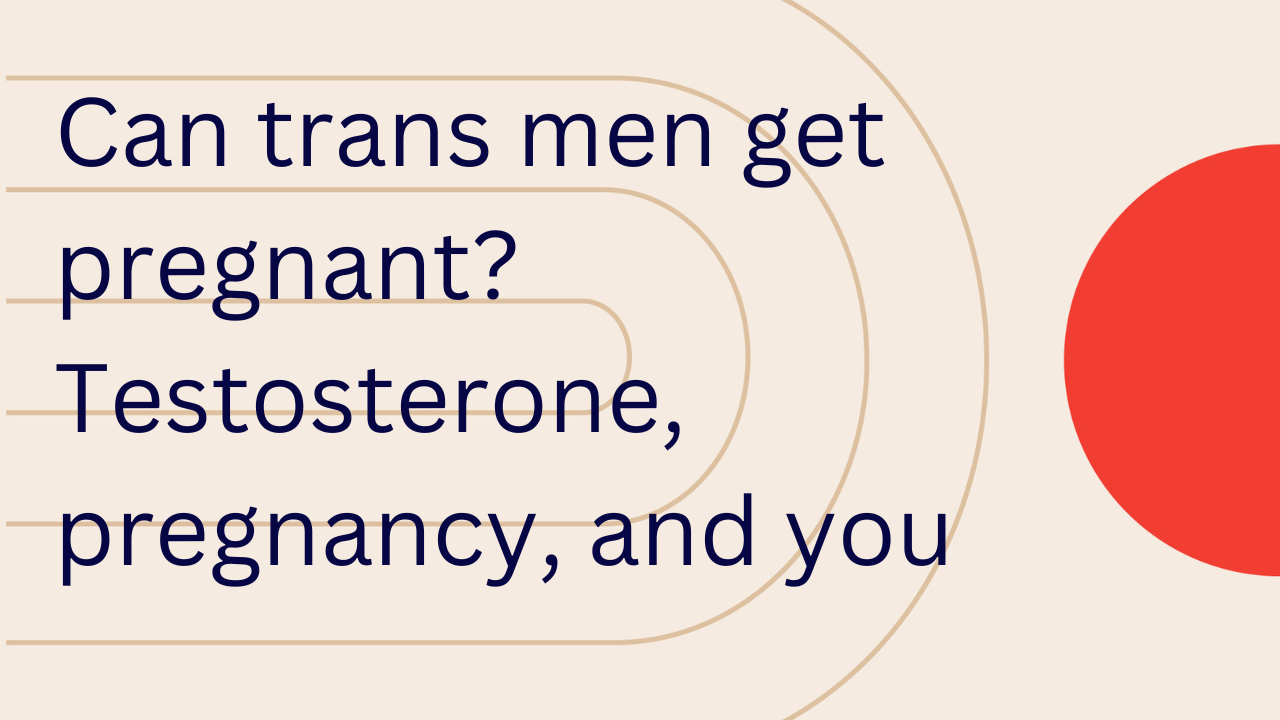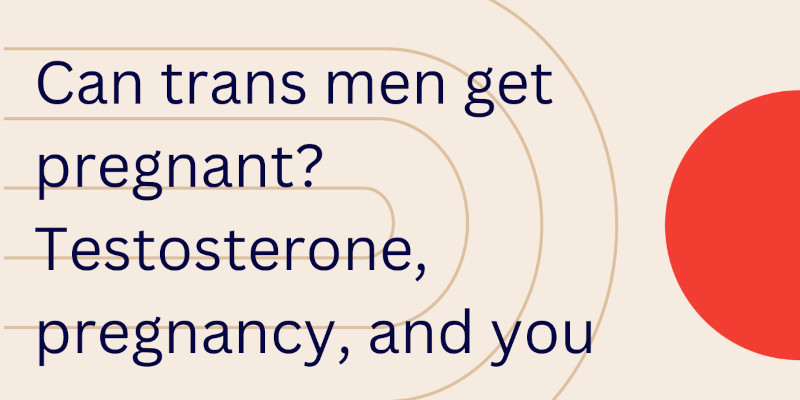Can Trans Men Get Pregnant? How Long It Takes To Get Pregnant After Testosterone

How Long Do You Have To Be Off Testosterone To Get Pregnant?
Though more research has been published in the last handful of years on trans fertility, there are still not close to enough resources for trans and genderqueer people on fertility, hormone use, pregnancy, or Assisted Reproductive Technology (ART). Simple questions, like, “What impact does taking testosterone have on fertility / egg quality?” or “How long do I have to be off testosterone before I can get pregnant?” are surprisingly hard to find answers to.
Research aside, our trans and gender non-conforming siblings and community show us every day that people with uteruses who were previously on testosterone do get pregnant, do complete reciprocal IVF, do successfully freeze their eggs, and do transfer embryos. And they have happy, healthy babies. Thank you for showing us what’s possible!
What I’m talking about is research. So, I’m going to offer you a (hopefully) more accessible round-up of the scientific research on your questions related to testosterone, gender-affirming androgen therapy, fertility, and more.
Can I Still Get Pregnant Or Use My Eggs If I’ve Taken Testosterone?
In a 2014 study of transgender men who experienced pregnancy after gender transition, 61% of participants used testosterone before pregnancy. Of those who experienced pregnancy, 80% started menstruating within 6 months of stopping testosterone and 20% got pregnant without starting menstruating again due to testosterone use. Meaning, one-fifth of the study participants got pregnant without their menstrual cycle even returning after stopping testosterone.
Similarly, patients in a 2019 study from Boston IVF and the Beth Israel Deaconess Medical Center, took testosterone in various forms lasting from 3 months to 17 years. On average, they took testosterone for 3.7 years before egg transfer, embryo freezing, or IVF. The average time it took for menstruation to resume after stopping testosterone was 4 months, with a variation of between 1-12 months. (Egg transfer involves a process of using estrogen-based hormone therapy to encourage a larger number of eggs to mature, and then extracting them to freeze or fertilize to make embryos for future transfer.)
Researchers compared the outcomes for the 26 trans patients with 130 cisgender patients of similar characteristics. Mean egg retrieval rates in the transgender male group were better than in the cisgender female group. Peak estradiol levels (a hormone that plays a role in maturing eggs) was the same for both groups.
Of the 26 trans patients, 16 successfully froze eggs and seven couples completed fresh or frozen embryo transfers which all resulted in live births (babies!).
So what did they actually find? Well, in a way, not much. This study suggests that even long-term testosterone use does not negatively impact ovarian stimulation outcomes. It also affirms that transmen have the same pregnancy outcomes as their cisgender female counterparts. It basically affirms what we already knew, and gives us research to cite when doctors erroneously suggest that testosterone use causes sterility (wrong!).
Does Taking Testosterone / GAHT Impact Egg Quality or Egg Production?
In a small, retrospective study from 2020 that compared transgender men’s ART (Assisted Reproductive Technology) outcomes with fertile cisgender women, the only difference between the groups was a higher amount of FSH needed to induce ovulation amongst the transmen who had previously used testosterone. There was no difference between the transmen and ciswomen in the other areas of investigation, including 1) peak estradiol levels (estradiol plays a role in maturing oocytes/eggs), 2) the number of oocytes (eggs) retrieved, 3) the number of MII oocytes (mature eggs), 4) and the egg maturity rates between the groups. Furthermore, five of the 6 transmen who had previously used testosterone elected to have embryos frozen. All of those frozen embryos were of good quality according to the researchers.
Though the study sample was small (12 transgender men and 12 cisgender women), this research suggests that not only is egg and embryo preservation a promising option for those having taken and not having taken testosterone, but it also suggests that there is no evidence to suggest that taking testosterone compromises egg quality.
Transmen, Transmasculine, and Nonbinary People Who Have Used Testosterone Have More Fertility Options Than Doctors Claim
You don’t have to choose between taking testosterone and your (future) fertility. What doctors have and continue to say, is wrong. Transmen, Transmasculine, and Nonbinary folks who have used testosterone, even for many years, can and do use their eggs to get pregnant or to freeze or transfer to a gestational carrier. What remains to be seen is if testosterone therapy can continue at lower levels throughout pregnancy and even during egg harvesting.
Keep checking for summaries of the latest research on trans fertility, pregnancy, and testosterone.
Citations:
Light, Alexis D, Obedin-Maliver, Juno, Sevelius, Jae M, et al. “Transgender men who experienced pregnancy after female-to-male gender transitioning.” Obstetrics and gynecology, 124(6). 2014.
Leung, Angela, Sakkas, Daenny, et al. “Assisted reproductive technology outcomes in female-to-male transgender patients compared with cisgender patients: a new frontier in reproductive medicine.” American Society for Reproductive Medicine. 112(5), 2019.
Amir, Hadar, Iris Yaish, et al. Ovarian stimulation outcomes among transgender men compared with fertile cisgender women. Journal of Assisted Reproduction and Genetics. 2020 Oct;37(10):2463-2472. Epub 2020 Jul 28.

